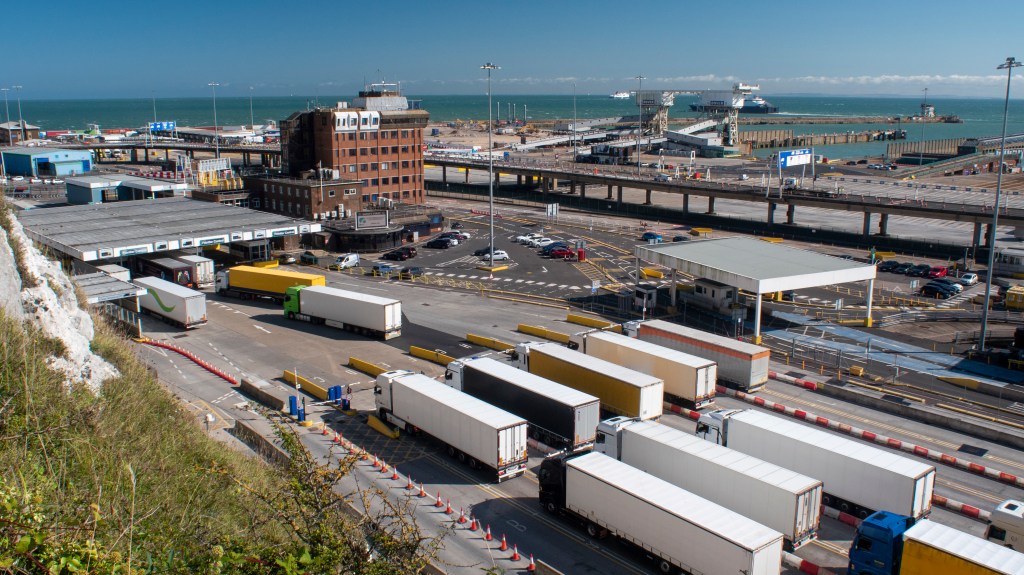Exporters Express Frustration Over Post-Brexit Border Checks
A detailed evaluation of Britain’s post-Brexit border checks has revealed that exporters are facing heightened stress, escalating expenses, and uncertainty regarding shipment timelines.
According to traders who participated in a study commissioned by HM Revenue & Customs (HMRC), the tax agency’s guidance on customs procedures was described as “unclear,” leading to confusion over what was required from them. When shipments were halted, they struggled to identify the correct contacts for resolving issues and securing the release of their goods.
Exporters indicated that these challenges resulted in significant delays, which in turn incurred additional costs. They had to cover the hiring of extra drivers, storage fees, and potential penalties from clients for lateness. This turmoil has led to increased stress levels among employees tasked with managing the flow of goods across borders. One trader from a prominent company remarked, “One of my staff has expressed a desire to avoid this area due to the unbearable stress it causes.”
The research, conducted by Ipsos, involved interviews with 35 traders along with their supporting agents.
A medium-sized export agent highlighted that the complications arising from border checks could be financially burdensome. “If problems arise, there is typically a financial penalty involved. Should these issues remain unresolved, it can lead to a loss on the job; for instance, storage fees at a terminal can skyrocket after a certain time frame—what starts as a £600 penalty can wipe out your entire profit margin,” they explained.
Many respondents suggested that HMRC could enhance communications with traders by providing more training for their personnel. A smaller agent noted, “The biggest challenge is the lack of information when issues occur.”
Traders conveyed to the researchers that the unpredictability surrounding the duration of checks made logistical planning very difficult.
Another small agent shared the challenges posed on their operations. “It requires a significant effort to determine what the problem is because they won’t engage with us directly. You have to send an email, which took me three contacts to obtain the correct address. Even then, the email reaches Border Force, not the front desk, which is not run by them.”
These elements collectively contribute to high stress levels, particularly when border checks extend beyond three or four days.
Despite these difficulties, the report noted that the participants generally viewed the process of moving goods across the UK border as relatively efficient.
A medium-sized trader commented, “I wouldn’t say the border checks have had a genuinely negative impact; they may have slightly delayed some operations now and then.”
Another small business trader, who carries out over 100 customs declarations annually, remarked, “Initially, things were chaotic post-Brexit, but things have improved significantly lately.”
William Bain, head of trade policy at the British Chambers of Commerce, remarked that daily operations across Britain’s land borders continue to be a point of distress for traders.
He pointed out that the HMRC study’s interviews were conducted prior to the full implementation of border controls on imported goods, including safety, security checks, and most physical inspections for food and plants.
Recent surveys of BCC members have identified customs and border processes as high-priority areas for reform, especially relating to trade between Britain and the European Union. Bain stated, “That’s why we’re advocating for a UK-EU summit to establish a robust agri-food agreement and eliminate safety and security declarations on both sides, which would substantially streamline border protocols for UK and EU businesses.”
Even if these proposed reforms take shape, some exporters appear to have accepted their circumstances. A large trader conveyed to HMRC’s researchers, “While we receive customer complaints regarding delays from border checks, we also face a multitude of complaints across various issues.”
In response, HMRC asserted, “Businesses have reported that moving goods across the border is generally smooth; we will continue to utilize feedback to enhance processes, fine-tune guidance, and facilitate the movement of legitimate goods. We are dedicated to simplifying customs procedures and minimizing administrative challenges while maintaining essential border checks.”




Post Comment